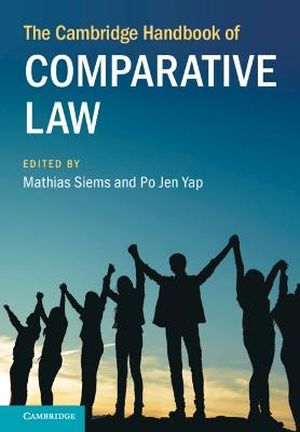
Comparative law is a common subject-matter of research and teaching in many universities around the world, and the twenty-first century has aptly been termed 'the era of comparative law'. This Cambridge Handbook of Comparative Law presents a truly global perspective of comparative law today. The contributors are drawn from all parts of the world to provide different perspectives on how we understand the 'law' and how it operates in practice.
In substance, the Handbook contains 36 chapters covering a broad range of topics, divided under the following headings: 'Methods of Comparative Law' (Part I), 'Legal Families and Geographical Comparisons' (Part II), 'Central Themes in Comparative Law' (Part III); and 'Comparative Law beyond the State' (Part IV).